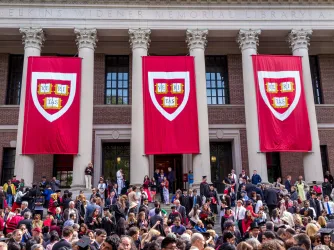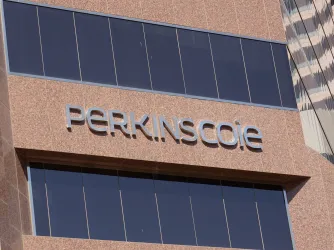Table of Contents
Torch Reader Exposes UCF’s Hypocrisy
David S. Ross, keen-eyed friend of free speech and Torch reader, has passed on his revealing e-mail correspondence with UCF President John Hitt and Associate General Counsel Youndy Cook. The exchange very clearly reveals that despite UCF’s protests to the contrary, the school definitely maintains “free speech zones”—and even refers to them as such. The initial letter, President Hitt’s response, and Ross’s reply all follow.
***
Dear President Hitt, Ms. Cook:
I am forwarding a copy of a note I just got from FIRE about UCF’s free speech zone policy. Whenever I get one of these notes from FIRE, I write to the university administrators involved to ask for their account of the matter. Please write to let me, and the academic colleagues to whom I’m forwarding this note, how you defend your policy of restricting protests and the like on your campus to free speech zones, or public assembly zones, or whatever you call them.
Ms. Cook, in your letter to FIRE, you state that “...the university does not have ‘free speech zones’”. You say that what’s restricted is assembly, amplification, and some other things. But, you say, clearly, these are not zones specifically for free speech, which is permitted throughout the campus.
Your claim directly contradicts UCF’s official news release of September 24, 2002 which is entitled, conveniently, “More Grounds for Free Speech”, and which begins:
Susan Loden
The free speech zone on UCF's campus may be expanded to include three new sites: the brick mall between the Student Union and the John T. Washington Center, the green between the Chemistry Building and Apollo Circle and ....
The entire news release can be read at the UCF website.
Your claim also contradicts the “Golden Rule” Event Management guidelines at the UCF website (I assume that this material is at least part of what you asked the folks at FIRE to read).
F. Free Assembly Areas
- University buildings and grounds may be scheduled for political activity and other exercises of free speech and assembly in areas specifically designated for that purpose by the President or designee. Such use must be on a noninterference basis with the conduct of classes or other normal activities of the University. Determinations of what constitutes interference shall be made by the University President or designee in the best interests of the University.
In the absence of specific designation made pursuant to (1.) above and subject to other regulations of the University regarding the assembly of large numbers of people, the use of sound amplification equipment, and maintenance of free access to all University facilities, four areas shall be deemed free assembly areas for the conduct of political activity and other exercises of free speech:
- The open grass area between the Kiosk and the Math and Physics Building as bounded by Apollo Circle and the sidewalks leading to the southwest entrance of the Math and Physics Building,
- The brick mall area between the John T. Washington Center and the Student Union.
- The area behind Health and Public Affairs 2 bordering the sidewalks and road adjacent to Engineering 2.
- The triangle formed by the sidewalks bordering Colbourn Hall, the John C. Washington Center, and the Colbourn Hall Faculty Parking lot.
Ms. Cook, if you can reconcile your statements about free speech zones in your letter to FIRE with the statements in this description of UCF’s official policy on Free Assembly Areas, please do it.
Sincerely,
David S. Ross
***
Mr. Ross:
The University of Central Florida celebrates free speech and encourages it throughout the campus. Despite the fact that some people persist in misrepresenting UCF’s policy, no prohibition of free speech appears anywhere in the university’s rules or regulations. Free speech is a right that is protected by the U.S. Constitution and upheld by the university.
UCF has designated four free assembly areas for large gatherings and/or the use of amplified sound. These areas, which are in prominent locations on campus, were selected to prevent such events from interfering with classroom instruction and study, the primary business of the university. In no way do these free assembly areas prevent students from exercising their free speech rights anywhere on campus.
John C. Hitt
President, UCF
***
Dear President Hitt:
Thank you for the reply.
You didn’t respond to my request. My request, made to Ms. Cook, (though I’d be glad to have you fulfill it), was:
...if you can reconcile your statements about free speech zones in your letter to FIRE with the statements in this description of UCF’s official policy on Free Assembly Areas, please do it.
You and Ms. Cook are saying, now, that UCF has no free speech zones.
But you’re not addressing the fact, which I have proved with several citations of official postings from the UCF website, that UCF refers to the “free assembly areas” as free speech zones, as areas specially designated for exercises of free speech, and as areas for the conduct of free speech. Your descriptions of these areas, not mine.
The question is:
If UCF has no free speech zones, why does UCF refer to its “free assembly zones” as free speech zones?
I, and the other folks to whom these notes have been forwarded, look forward to your answer.
Sincerely,
David S. Ross
***
Needless to say, we here at FIRE look forward to President Hitt’s answer as well. UCF has offered nothing to counter FIRE’s charges. Not only does UCF have free speech zones, but they enforce them against UCF students—and no amount of prevaricating can change that.
Recent Articles
FIRE’s award-winning Newsdesk covers the free speech news you need to stay informed.

FIRE POLL: Only 1/4 of Americans support deporting foreigners for pro-Palestinian views

Harvard’s resistance to Trump is a model for US universities

Sixty-one media organizations and press freedom advocates contest Perkins Coie executive order — First Amendment News 466
